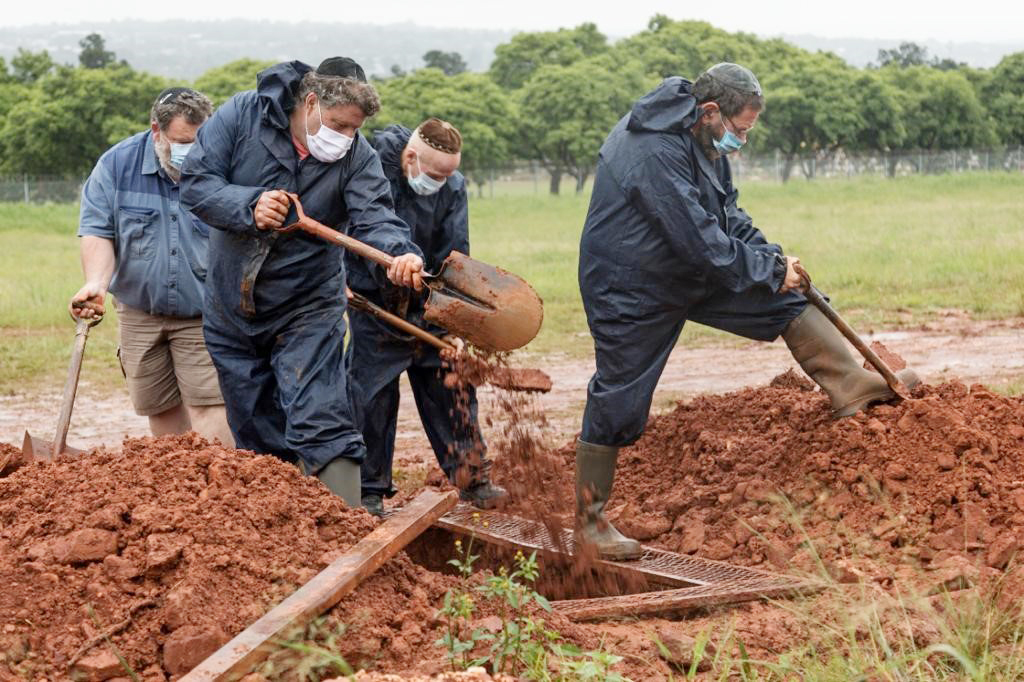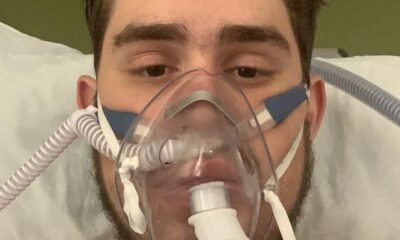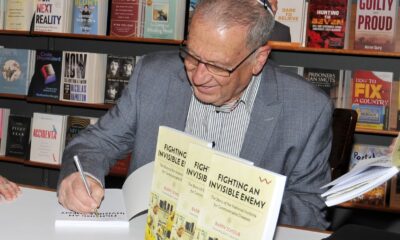
Community

Silent heroes touch lives during time of sorrow
There has been a focus on frontline healthcare workers and emergency medical personnel during the COVID-19 pandemic, but what about the community’s loyal and over stretched “death-care” workers?
These are the unsung heroes of Johannesburg’s Chevrah Kadisha burial services, the last responders on the frontline whose day begins when someone in the community dies. Sadly, they have been very busy.
They are known as mesuskim (attendants), and no matter what time of day – and often in the middle of the night – they are the ones to answer the phone when you have to make that dreaded call. From a smallholding in Krugersdorp, a rundown flat in Hillbrow, to a mansion in the suburbs, these men are often the first to arrive and offer a kind word.
Since the start of the pandemic, these silent heroes of Westpark Cemetery have touched the lives of countless people. They have had to adapt to a whole new world of figuring out how to comfort mourning families from a distance wearing full personal-protective equipment while adhering to the health department’s vastly changed protocols.
This week, the Chev’s six full-time mesuskim were presented with new suits donated by the community in a show of appreciation for their efforts. They reminisced about the “fearful and terrifying” early days of the pandemic.
“It was scary when we attended the first few COVID-19 calls,” said Keith Tabakin who has been at Westpark for nine years. “We had to adapt and face our fears.”
The six full-time mesuskim work around the clock in shifts making sure that there is always someone on duty, said funeral director David Weber, who has been with the Chevrah Kadisha for 13 years.
The Johannesburg Chevrah Kadisha is unique, he said. “In other places, there are separate companies that deal with coffins, burial plots, or funeral arrangements. Overseas, the Chev takes care of the dead, over here we look after the dead and the living.”
All it takes is one phone call for the team of dedicated burial specialists to spring into action. Weber and Funeral Directors Philip Kalmonowitz and Darren Sevitz, together with the six mesuskim and many volunteers take care of everything from collecting the deceased, doing tahara, which spiritually prepares bodies for burial, attending funeral arrangements, navigating the paperwork, and carrying out the burial. The mesuskim attend every funeral, and on many occasions form part of the minyan when there aren’t enough men present.
During the COVID-19 pandemic, the work has been seemingly endless. Regretfully there have been too many calls.
According to Chevrah Kadisha Chief Executive Saul Tomson, the number of funerals rose 82% in January compared to the average number of funerals over the past five years. The number of funerals in December rose 37% compared to the past five Decembers.
“Even though burial is only a small part [less than 5%] of the Chev’s activities, it’s at the core of who we are and where we come from,” he said.
There are on average 40 funerals a month in “normal” times, said Weber. “In July, there were 110 funerals during the first pandemic surge.” There were days when the men attended to nine or 10 funerals.
The head of the ladies tahara, Shirley Resnick, is like a mother figure to the mesuskim. She recalls when it was so busy, she had to ensure that they were adequately fed because many worked long stretches without eating.
“There were many nights when we arranged mattresses and blankets so they could sleep in the newly built tahara room at Sandringham Gardens,” she said, to ensure that if they were worked late, they could be back at work early the next day.
“Some of them were traumatised in the beginning by having to visit COVID-19 wards or homes where they felt at high risk of exposure. There were times some considered pulling out but instead, they pulled together. They are a close-knit group who help each other.”
So how do they cope?
“We focus on the job,” said Tabakin who is grateful to be able to help people, especially those he knows, during a stressful period in their lives.
“There is life after the cemetery,” said Neil Nathan. “At work, we concentrate on what we’re required to do with compassion and care, but when we leave, we try to switch off and concentrate on our family life.”
Although it has been stressful and difficult at times, Eddie Taitz said he found the work rewarding.
“Before I came to work at the Chev, I was petrified to be even in the driveway of Westpark, but now I’m used to it. It has become a way of life,” he said.
Braam Shevel, who contracted COVID-19 last year, has been at the Chev for 15 years. The husband and father of two said the work can sometimes take its toll, but his spirits are lifted because his work enables him to “touch people’s lives”.
“People remember any act of kindness – a simple gesture or a certain look – for years to come. This brings me a sense of fulfilment and reminds me of the importance of the work we do,” he said.
The longest serving member of the mesuskim, Rodney Margot, takes pride in having adapted to the new rules laid down by the health department and the extra work brought by the pandemic. The husband and father of two grown children said the hours were long but no funerals were delayed and everyone was buried speedily and according to Jewish law.
Colin Barnett said he felt honoured to perform the mitzvah of caring for the deceased. “It’s good to know that in our small way we can offer people comfort when they need it most,” he said.
Doing a kindness for the departed is called a “kindness of truth” said Chev Group Rabbi Jonathan Fox because “one cannot expect anything in return”.
“It’s done with pure intentions and that’s what makes it so holy. They are helping those who literally cannot help themselves, and this is the highest form of kindness.”
Said Tomson, “We are blessed to have such a committed and caring group doing this vital work, especially at a time like this. I salute every one of them.”











Ella Shishler
February 4, 2021 at 10:02 am
These men are truly unsung heroes.
Their dedication, humility and commitment is unsurpassable.
They work long, gruelling hours in anonymity.
Thank you “Jewish Report” for recognising these sterling gems in our community.
derek shapiro
February 4, 2021 at 12:31 pm
pity no comments were also made about the cape town staff attending to burials. They likewise are also the ‘unsung” hero’s of the pandemic.
Moira Markowitz
February 8, 2021 at 8:34 pm
I thank them from the deepest part of my heart and soul for their heroic work at such a time of the dreadful pandemic. I pray for their safety. I do believe however that they are overworked and I worry about the toll it can take on their health and mental health. They need to be supported more by the society for the hardest work on the planet… financially.. hero pay … salary increases .. donations and honor them… also they need to be the first in line for the vaccination. Can we start a Go fund me to help raise money to honor them? I am very proud and honored to know my beautiful brother Colin Barnett., a true mensch.. man of honor, integrity and respect. Thank you for all the work you all do.
Best regards
Moira Barnett Markowitz